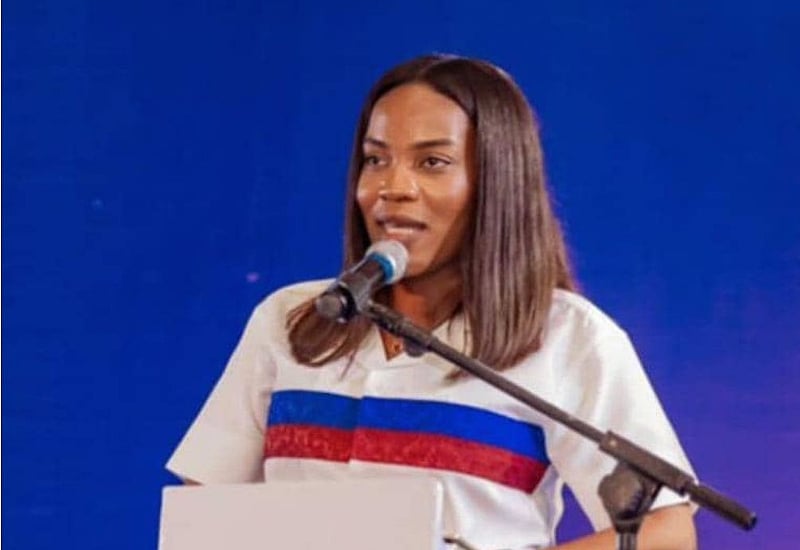Dr. Ekua Amoakoh, a member of the New Patriotic Party’s (NPP) communication team, has seized upon recent statements by former President John Dramani Mahama acknowledging the severe economic fallout from the COVID-19 pandemic as validation of the Akufo-Addo administration’s economic policies. Dr. Amoakoh, who also served as the NPP’s health spokesperson during the 2024 election campaign, contends that Mahama’s admission, made on an international stage, contradicts the narrative previously espoused by the National Democratic Congress (NDC) during the 2022 economic downturn in Ghana. She accuses the NDC of employing deceptive rhetoric within Ghana while admitting to the true causes of the economic challenges only when speaking abroad. This alleged duplicity, she argues, undermines the NDC’s credibility and exposes their attempts to politicize the economic hardships faced by Ghanaians.
Central to Dr. Amoakoh’s argument is the assertion that the NDC deliberately misrepresented the factors contributing to Ghana’s economic difficulties in 2022. She points to the global nature of the crisis, triggered by the COVID-19 pandemic, as the primary driver of economic hardship, not the policies of the then-incumbent NPP government. According to Dr. Amoakoh, the NDC, while in opposition, capitalized on the economic downturn to propagate a false narrative blaming the government’s mismanagement and ignoring the global context. Mahama’s acknowledgement of the pandemic’s devastating economic consequences, she suggests, effectively dismantles this narrative and vindicates the NPP’s position.
Furthermore, Dr. Amoakoh highlights the role of then-Vice President Dr. Mahamudu Bawumia in navigating Ghana’s economic recovery. She credits Dr. Bawumia’s economic interventions, particularly the domestic gold purchase program and other commodity-backed initiatives, as crucial to stabilizing the Ghanaian economy amidst the global turmoil. These policies, she argues, demonstrate the NPP’s proactive and innovative approach to addressing the economic challenges, countering the NDC’s portrayal of the government as inept and unresponsive. Dr. Amoakoh posits that the NDC’s criticism during the crisis was politically motivated and lacked a genuine understanding of the complex global economic factors at play.
The context of Mahama’s statement, delivered at the Accra Reset event during the 80th United Nations General Assembly in New York, is significant to Dr. Amoakoh’s argument. She emphasizes that the NDC’s purportedly truthful admissions about the economic crisis are only made outside of Ghana, where they are less likely to face scrutiny from a domestic audience familiar with their previous rhetoric. This, she suggests, is a calculated strategy to avoid undermining their own propaganda within Ghana and maintain a semblance of credibility among their supporters. The international platform of the UN General Assembly, she implies, offers Mahama a degree of insulation from domestic political repercussions.
Mahama’s address at the Accra Reset event focused on the global impacts of the COVID-19 pandemic and climate change. He highlighted the reversal of decades of poverty reduction and the exacerbation of chronic hunger worldwide, directly linking these issues to the pandemic and the changing climate. While acknowledging the multifaceted nature of these global challenges, Dr. Amoakoh interprets Mahama’s remarks primarily through the lens of Ghanaian domestic politics. She views Mahama’s statements as an implicit acknowledgement that the NDC’s criticisms of the NPP’s economic management during the 2022 crisis were unfounded and opportunistic.
In essence, Dr. Amoakoh argues that Mahama’s admission of the pandemic’s significant economic consequences serves as a belated recognition of the challenges faced by governments worldwide, including the NPP administration in Ghana. This admission, in her view, effectively exonerates the NPP from the blame assigned by the NDC and underscores the validity of the government’s economic policies. She contrasts the NDC’s alleged political opportunism with the NPP’s responsible stewardship of the Ghanaian economy during a period of unprecedented global upheaval. The debate surrounding the causes of Ghana’s economic challenges and the effectiveness of the government’s response continues to be a significant point of contention between the two major political parties.














